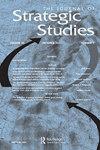承认阿富汗塔利班政府
IF 1.3
2区 社会学
Q2 INTERNATIONAL RELATIONS
引用次数: 0
摘要
塔利班接管喀布尔是一个重大的区域事态发展,对国内、区域和全球都有影响。关于承认新的塔利班政府;国际社会的重要国家根据其在阿富汗邻近地区的战略计算、政治价值和长期外交政策目标,谨慎地作出反应。在阿富汗有利害关系的国家主要分为两组:美国领导的国家组和中国-俄罗斯领导的国家组。美国领导的小组主张,在决定承认问题和确定与阿富汗接触的性质时,将考虑塔利班在基本人权方面的行为、他们组建包容性政府的承诺以及他们脱离国际恐怖主义网络。中俄集团更倾向于维护地区稳定,希望填补美国及其盟友在阿富汗留下的战略真空。该地区国家正在重新调整自己,与这两个主要集团中的任何一个结盟,以应对阿富汗不断演变的局势。本文试图以国际法和国际关系学中承认新政府的概念框架为基础,分析国际社会对-à-vis阿富汗新成立的塔利班政府的反应和关注。本文章由计算机程序翻译,如有差异,请以英文原文为准。
Recognition of the Taliban Government in Afghanistan
The Taliban takeover of Kabul is a significant regional development having domestic, regional and global implications. Regarding the recognition of the new Taliban government; recently announced, the important states of the international community are responding with caution based on their strategic calculations, political values and long-term foreign policy goals in the regions adjoining Afghanistan. The states having stakes in Afghanistan are mainly divided in two groups: The US led group and the China-Russia led group of states. The US led group has advocated that the conduct of the Taliban on fundamental human rights, their commitment of forming an inclusive government and their detachment from international terrorist networks will be taken in consideration for deciding on the question of recognition and determining the nature of engagement with Afghanistan. The China-Russia group, is more in favor of regional stability and interested in filling the strategic vacuum left in Afghanistan by the US and its allies. The regional states are realigning themselves, with either of the major group, to respond to the unfolding situation in Afghanistan. Based on the conceptual framework of recognition of new governments in International Law and International Relations, this paper attempts to analyze the responses and concerns of the diverse international community vis-à-vis the newly formed Taliban government in Afghanistan.
求助全文
通过发布文献求助,成功后即可免费获取论文全文。
去求助
来源期刊

Journal of Strategic Studies
Multiple-
CiteScore
4.00
自引率
5.30%
发文量
40
期刊介绍:
The defining feature of The Journal of Strategic Studies is its commitment to multi-disciplinary approach. The editors welcome articles that challenge our historical understanding of man"s efforts to achieve political ends through the application of military and diplomatic means; articles on contemporary security and theoretical controversies of enduring value; and of course articles that explicitly combine the historical and theoretical approaches to the study of modern warfare, defence policy and modern strategy. In addition to a well-established review section, The Journal of Strategic Studies offers its diverse readership a wide range of "special issues" and "special sections".
 求助内容:
求助内容: 应助结果提醒方式:
应助结果提醒方式:


